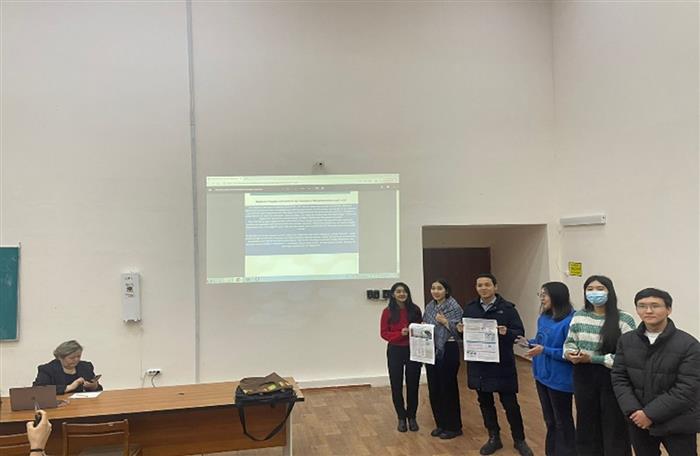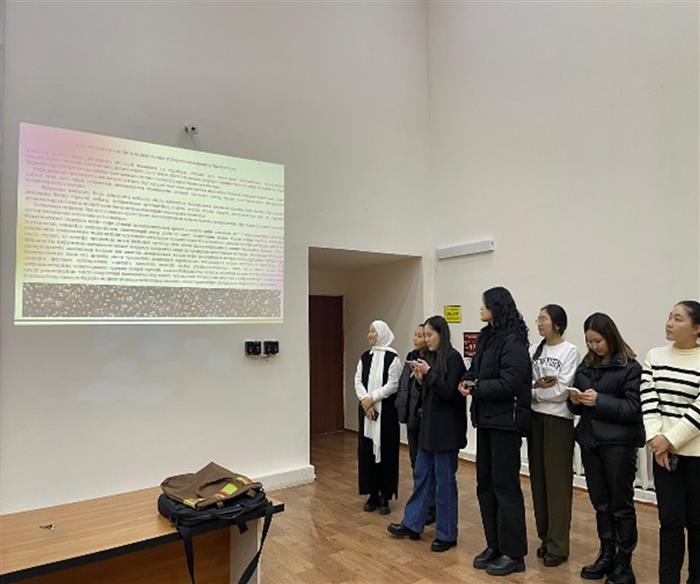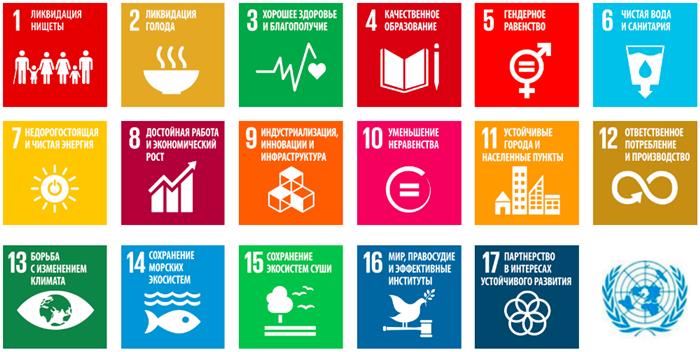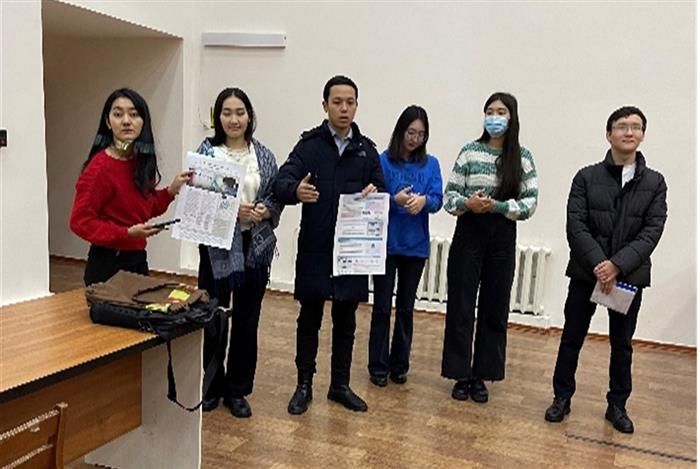EVENT WITHIN THE FRAMEWORK OF THE SDGS – PROBLEM LECTURE ON THE TOPIC: «THE POTENTIAL OF ENZYMOLOGY IN SOLVING THE PROBLEMS OF SDG 3. «ENSURE HEALTHY LIFESTYLES AND PROMOTE WELL-BEING FOR ALL AT ALL AGES».
December 12, 2023 at 13.00 at BAZ-2 GUK-6 Doctor of Chemical Sciences, Professor Shoinbekova S.A. in the trajectory of studying the discipline «Enzymology» held with 3rd year students of the specialty «06B05103 – Biotechnology» EVENT WITHIN THE FRAMEWORK OF SDGs - a problematic lecture on the topic: "Possibilities of enzymology in solving the problems of SDG 3. «Ensuring a healthy lifestyle and promoting well-being for everyone at any age».


The report was made by Doctor of Chemical Sciences, Professor Shoinbekova S.A. She told the background to the emergence of this Program and explained the essence of the Sustainable Development Goals Program.
Shoinbekova S.A.: «The UN General Assembly in 2000 adopted the Program, which was originally called the Millennium Development Goals (MDGs), which was to be launched in 2015.
Sustainable development is a concept of social development in which the current needs of humanity are met without harm to subsequent generations.
The main goal of this Program was to rid humanity of poverty and «heal» the planet by 2030. In 2012, at the UN Conference on Sustainable Development, UN member countries decided to create a working group to develop a set of sustainable development goals, which a year later presented recommendations for defining 17 sustainable development goals».
The Sustainable Development Goals (SDGs) are 17 interrelated goals as “a blueprint for achieving a better and more sustainable future for all.”
The concept of sustainable development combines three main directions: economic, social and environmental, and this is: optimal use of limited resources and environmentally friendly - nature, energy-, and material-saving technologies, maintaining the stability of social and cultural systems, ensuring the integrity of biological and physical natural systems.
On September 25, 2015, 193 countries adopted the following 17 global goals:

The implementation of the SDG Program will play a fairly large role in solving global problems. It is officially stated that over the past almost two decades, it has been possible to almost halve the percentage of people living below the poverty line, reduce child and maternal mortality by almost half, make significant progress in combating diseases such as HIV and malaria, and more than double the amount of assistance provided by developed countries in order to development.
Next, students' reports were heard:
1. «Enzymology in the food industry - new opportunities».
2. «Modern development of enzyme diagnostics and enzyme therapy».
3. «Biotechnology in addressing SDG 3: the use of enzymes in genetic engineering».
Students with great interest discussed and debated the problems of public health, nutrition, hunger, the expansion of the halo of modern bad habits, the importance of proper nutrition for human health, discussed the search for solutions to these problems, the creation of balanced food products, the use of GMOs, discussed ways to eliminate hunger, attracting people of different ages to a healthy lifestyle, sports, the contribution of biotechnology and enzymology in solving public health problems.
It was noted that this goal of sustainable development requires quite a lot of effort and costs (financing for the creation of food products and providing every person on the planet with adequate nutrition, protecting people’s health (solving the problems of diagnosing and treating various epidemics, providing the population with modern high-quality and effective vaccines and medicines, medical institutions and sports complexes, etc.) But this program will be successful and will be solved if each person starts small - himself: leads a healthy lifestyle, monitors the health of himself and those close to him, strives to raise social standard of living.

In addition, students noted that it is necessary to treat water, the environment, and food products carefully and rationally, and to properly dispose of food waste. The students reacted very responsibly to this event: they prepared reports and presentations competently, worked actively with literature, made posters, which is a good indicator of their professional level, and showed personal qualities and patriotism.








